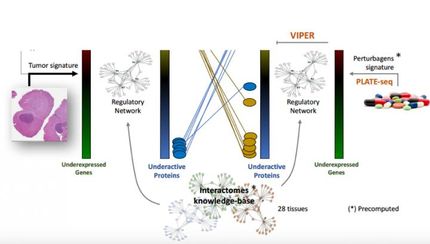Oncolytics Biotech Inc. Announces U.S. Phase 2 Combination Clinical Trial for Non-Small Cell Lung Cancer Patients
Advertisement
Oncolytics Biotech Inc. announced that following U.S. food and Drug Administration (FDA) review, the Company is initiating a U.S. Phase 2 clinical trial using intravenous administration of REOLYSIN(R) in combination with paclitaxel and carboplatin in patients with non-small cell lung cancer (NSCLC) with K-RAS or EGFR-activated tumours. The Principal Investigator is Dr.Miguel Villalona-Calero, Professor Division of Hematology/oncology and Department of internal medicine and pharmacology at TheOhio State UniversityComprehensive Cancer Center.
This trial is a single arm, two-stage, open-label, Phase 2 study of REOLYSIN(R) given intravenously with paclitaxel and carboplatin every 3 weeks. Patients will receive four to six cycles of paclitaxel and carboplatin in conjunction with REOLYSIN(R), at which time REOLYSIN(R) may be continued as a monotherapy. It is anticipated that up to 36 patients will be treated in this trial.
Eligible patients include those with metastatic or recurrent NSCLC with K-RAS or EGFR-activated tumours, who have not received chemotherapy treatment for their metastatic or recurrent disease. Patients must have demonstrated mutations in K-RAS or EGFR, or EGFR gene amplification in their tumours (metastatic or primary) in order to qualify for the trial.
The primary objectives of the Phase 2 trial are to determine the objective response rate of REOLYSIN(R) in combination with paclitaxel and carboplatin in patients with metastatic or recurrent NSCLC with K-RAS or EGFR-activated tumours, and to measure progression-free survival at 6 months. The secondary objectives are to determine the median survival and duration of progression-free survival in patients, and to evaluate the safety and tolerability of REOLYSIN(R) in combination with paclitaxel and carboplatin in this patient population.
REOLYSIN(R) preferentially replicates in cancer cells that have an activated RAS pathway. Approximately two thirds of all cancers have an activated RAS pathway, including most metastatic disease. A large number of mutations, including mutations in EGFR, Her2 or K-RAS along the RAS pathway lead to RAS pathway activation.
Most read news
Other news from the department research and development

Get the life science industry in your inbox
By submitting this form you agree that LUMITOS AG will send you the newsletter(s) selected above by email. Your data will not be passed on to third parties. Your data will be stored and processed in accordance with our data protection regulations. LUMITOS may contact you by email for the purpose of advertising or market and opinion surveys. You can revoke your consent at any time without giving reasons to LUMITOS AG, Ernst-Augustin-Str. 2, 12489 Berlin, Germany or by e-mail at revoke@lumitos.com with effect for the future. In addition, each email contains a link to unsubscribe from the corresponding newsletter.






















































